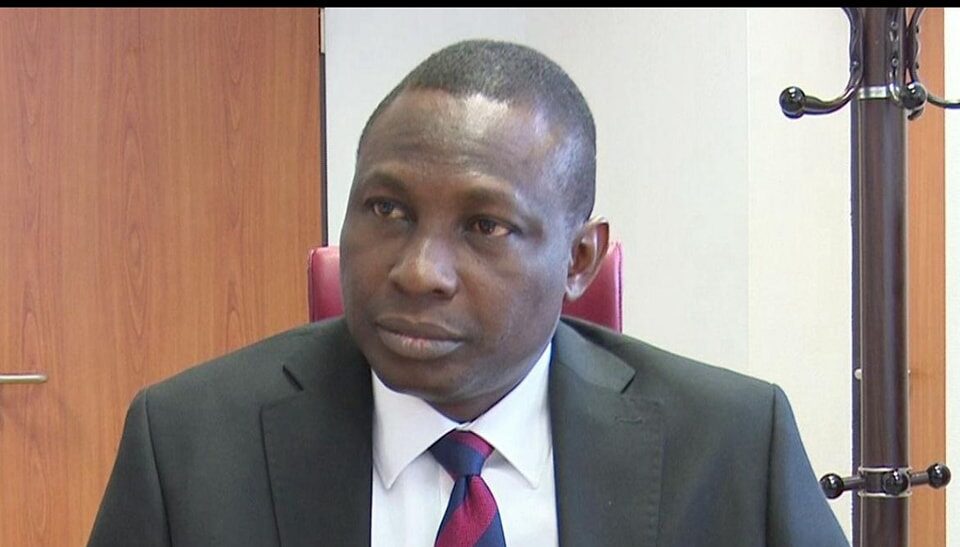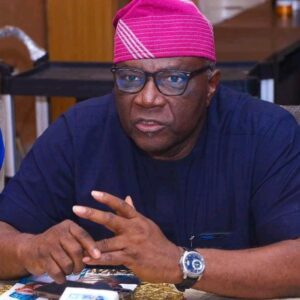
EFCC goes after PtoP operators, hands over 14 forfeited properties to Enugu Govt
The Economic and Financial Crimes Commission (EFCC) has commenced a clampdown on users of Peer to Peer platforms for foreign exchange transactions.
Speaking at a meeting with media executives in Abuja on Tuesday, Chairman of the EFCC, Mr Ola Olukoyede disclosed that the EFCC, in its bid to ensure the safety and stability of the foreign exchange market, has uncovered a new fraudulent scheme called P to P (peer to peer) trading scheme.
The platform, according to him, is operating outside the official banking and financial corridors with more than 300 (three hundred) accounts linked to it already frozen by the EFCC.
He reaffirmed the commitment of the Commission to the economic growth and development of the country, promising that the EFCC would not relent in the exercise of its mandate.
He also revealed that the Commission has recovered more than N120 billion from fraudsters within six months and secured more than 1300 convictions.
Meanwhile, the EFCC has also handed over 14 properties initially forfeited to the Federal government to the government of Enugu State.
The transfer of the properties to Enugu State governor, Dr Peter Mba was performed by the EFCC Chairman at the corporate headquarters of the Commission.
Speaking before the brief handover ceremony, Olukoyede who disclosed that the road to the forfeiture dated back to 2007, stated that event spoke of the mutually beneficial relationship existing between the federal government and states.
“What we are witnessing today testifies to a symbiotic relationship that should exist between the federal government and the state governments. The essence of our meeting here today is for us to handover properties that were forfeited to the federal government, which of course belong to Enugu State people back to the people. It shows that governance can work in Nigeria. Our people deserve the benefits of good governance and that is what is being evidenced here today.”
Speaking further, he said, “If you look at the history of this particular matter, it takes us back to 2007 when we started the prosecution. So we are looking at about 17 years since the matter has been on.
“Eventually some of the properties were forfeited and since then, the EFCC has been managing those properties even though the titles of quite a number of the properties have been revoked by the Enugu State government. What we are witnessing here today is the official handing over of the properties to the people of Enugu State through His Excellency, Dr Peter Mba,” Olukoyede said.
Earlier in his remarks, Governor Ubah expressed gratitude for the handover and thanked the EFCC chair and the Commission for ensuring that the people of his state reclaimed their common patrimony.
“I would like to express my profound gratitude for the event we are witnessing today. The importance and significance of this event can never be lost on us and we do not also take it for granted.
“So I want to take this opportunity to convey my profound gratitude and deep appreciation to the chairman and members of the EFCC team that have brought us to where we are today.
“This is a journey that began several years ago and we are marking a formal closure to that journey here today. A journey that saw the successful prosecution of certain companies in possession of assets belonging to the people of Enugu State.”
The Governor who noted that the properties were forfeited not to his state but to the federal government expressed gratitude to President Bola Tinubu for making it possible for them to be returned to the government and people of Enugu State.
“Those assets were forfeited to the federal government. And this brings me to another gratitude that I want to convey here today. I want to acknowledge and recognise the important role played by the President, His Excellency Bola Ahmed Tinubu.
“Without the proactiveness and speed at which he acted on our request to cede these assets back to the people and government of Enugu State, we wouldn’t have been here today. So I want to thank him most sincerely for granting our request for these assets that were forfeited to the federal government to be ceded back to Enugu State.”
He lauded Olukoyede’s initiatives at making the EFCC a strong institution and cautioned against attempts by some individuals to distract the Commission.
“I will not end this remark without acknowledging the work the EFCC chairman is doing in strengthening this very important institution. It is important that we do not weaken our institutions.
“Whatever we do in governance is transient. So I want to commend him for the efforts he is making in ensuring that this very important institution, the EFCC is strengthened. Thank you very much for all the great work you and your team are doing and particularly for the effort that you have put in to make today a reality,” the Governor stated.
The properties comprise houses, transmission equipment for radio and television stations, a building for medical operations, among others.




